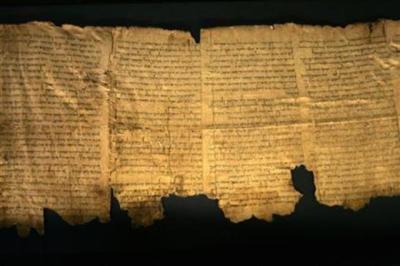Dead Sea Scroll Fragments Up for Sale; Will Another Private Citizen Be Owner?
Fragments of the Dead Sea scrolls are set to be auctioned off to the public, which will give private citizens and religious institutions the opportunity to own a part of biblical history – if they can afford the asking price.

Even though The Associated Press is reporting that the Israel Antiquities Authority (IAA) objects to the sale of the fragments and is threatening to seize any pieces that go on the market, according to Paige Patterson, president of Southwestern Baptist Theological Seminary in Fort Worth, Texas, scholars and the Israeli and Jordanian governments have known for years about the Kando family's ownership of the Dead Sea scroll fragments that were shipped out of the country before the 1978 antiquities law was enacted.
When claims of ownership of the Dead Sea scrolls are being discussed, "Jordan also has to be considered," Patterson told The Christian Post on Friday. "Jordan, which has the copper scroll and is the third largest holder of the scrolls, claims that all of the scrolls should be in their possession." He noted that when it comes down to it, the scrolls actually belong to the Qumran community.
Patterson also believes that the scroll fragments are legitimately on the market, as they were taken out of Israel before that country's antiquities law was enacted.
William Kando, the son of Iskandil Kando, the man who bought four Dead Sea scrolls from the Bedouins, who discovered them, and later sold them to the archbishop of the Assyrian Orthodox church, is selling the scroll fragments, most of which are "barely postage-stamp sized, and some are blank," as reported by the AP.
Iskandil Kando died in 1993, leaving his remaining collection to his family.
The Kando family reportedly offered to sell the scroll fragments to the IAA, among other Israeli institutions, but they couldn't afford the asking price.
"If anyone is interested, we are ready to sell," Kando reportedly told the AP. "These are the most important things in the world."
Randall Price, executive director of the Center for Judaic Studies at Liberty University, wrote on his website, World of the Bible, that he's met with Kando in the Jerusalem antiquities shop he inherited from his late father. "Kando does have more fragments for sale, however, the price is in the hundreds of thousands of dollars, and he is very insistent that the remaining fragments go to institutions that deal with the Bible so that they can be shared with Christian believers."
Price continues, "William now possesses the remains of one large scroll of Genesis (valued at $35 million) and numerous fragments of biblical texts. A number of these were sold to Azuza Pacific University and Southwestern Baptist Theology Seminary."
The Genesis 37-38 fragment, owned by the Kando family, is considered to be the largest Dead Sea scroll segment held by a private collector, and was on display at Southwestern Baptist Theological Seminary during their exhibition, "Dead Sea Scrolls & the Bible: Ancient Artifacts, Timeless Treasures." The seminary purchased nine fragments from the Kando family, and those were also on display during the public exhibition, and are now being used by students who are studying Paleo-Hebrew.
Patterson said that it's important for institutions, such as Southwestern Baptist Theological Seminary, to own these fragments, because many people who want to see these documents cannot afford a ticket to Israel or Jordan to see them.




























